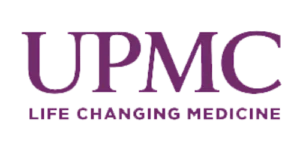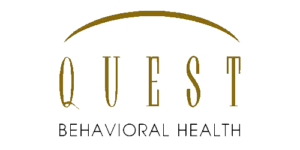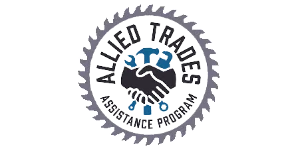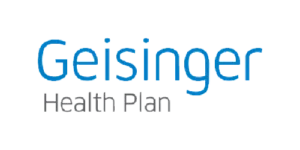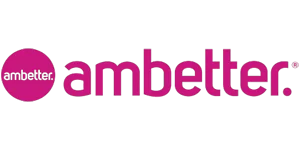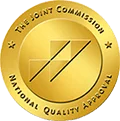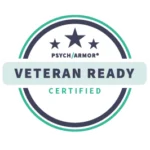When most people think about addiction recovery, they focus on physical detoxification: the process of removing drugs or alcohol from the body. While detox is important, it’s only the beginning. True recovery involves healing the mind, body, and spirit. Behavioral health addresses the mental and emotional aspects of recovery, helping individuals identify harmful patterns, develop healthier coping mechanisms, and rebuild their lives.
Behavioral health refers to the connection between thoughts, feelings, behaviors, and overall well-being. It focuses on how mental health impacts daily life and decision-making, and in the case of addiction, how certain behaviors perpetuate substance use. In recovery, this means learning how to manage triggers, reduce stress, and improve relationships – all essential for long-term sobriety.
At Arkview Behavioral Health, behavioral health treatment is integrated into every stage of recovery. By offering evidence-based therapies alongside supportive care, we ensure that clients not only overcome addiction but also gain the skills to thrive.
Why Is Behavioral Health Important in Addiction Recovery?
Addiction is rarely just about drugs or alcohol. It often stems from deeper issues like trauma, anxiety, depression, or environmental stressors. Behavioral health treatment targets these root causes, reducing the likelihood of relapse and helping people live more balanced, fulfilling lives.
Many individuals in recovery also struggle with co-occurring mental health disorders such as PTSD, bipolar disorder, or generalized anxiety. Without treating these conditions, recovery is much harder to sustain. Behavioral health programs integrate mental health care into addiction treatment to ensure the whole person is addressed.
Triggers can be anything from stressful situations to certain people or places that remind a person of substance use. Behavioral health therapy helps individuals recognize these triggers early and develop healthy responses.
Addiction thrives on repetition. Behavioral health focuses on breaking the cycle by replacing destructive habits with positive, healthy behaviors that align with recovery goals.
Recovery often involves repairing damaged relationships. Family therapy, communication training, and conflict resolution help restore trust and build a support network.
Behavioral health equips clients with relapse prevention strategies. This may include building coping skills, developing an action plan for high-risk situations, and staying connected to support groups.
Behavioral health work often includes developing a greater awareness of emotions, both your own and others’. This emotional intelligence can be transformative in recovery, improving empathy, patience, and conflict resolution skills.
Therapy supports a mindset shift from blame to responsibility. Clients learn to take ownership of their choices while acknowledging the factors that influence them.
Behavioral health treatment encourages changes that support sobriety, such as developing healthy routines, incorporating fitness and nutrition, and prioritizing self-care.
A vital yet sometimes overlooked benefit is increased confidence in one’s ability to handle challenges. Behavioral health programs instill problem-solving skills and resilience that extend far beyond recovery.
Stress is inevitable, but behavioral health equips clients with tools to manage it constructively, preventing the kind of overwhelm that can lead to relapse.
Behavioral health strengthens the ability to recover quickly from setbacks. This mental resilience is invaluable in maintaining sobriety during life’s inevitable ups and downs.
Therapy often inspires people to set new goals in education, career, and personal development, creating a richer, more meaningful life.
Many individuals in recovery have spent years isolated or only engaging with peers who also used substances. Behavioral health programs help them practice social skills, join healthy activities, and engage in community service.
Therapy supports building self-worth by helping clients see themselves as capable, valuable, and deserving of a better future.
As clients grow in their recovery, many find purpose in helping others. Behavioral health programs often encourage graduates to mentor peers, participate in advocacy work, or become recovery coaches.
An important yet subtle benefit is learning to see oneself beyond the label of “addict” or “patient.” Behavioral health fosters a more holistic identity that includes being a friend, parent, employee, or community leader.
What to Expect in Behavioral Health Treatment
Arkview Behavioral Health offers both Partial Hospitalization Programs (PHP) and Intensive Outpatient Programs (IOP), giving clients access to high-quality care while maintaining flexibility.
Comprehensive Assessments
Every client begins with a detailed evaluation of their mental health, substance use history, and personal goals. This allows the care team to create a customized treatment plan.
Individual Therapy
Clients meet with licensed therapists to work through personal challenges using evidence-based methods such as Cognitive Behavioral Therapy (CBT) and Dialectical Behavior Therapy (DBT). These sessions help individuals reframe negative thinking and develop healthy coping mechanisms.
Group Therapy
Sharing experiences with peers provides encouragement and perspective. Group sessions promote accountability, empathy, and community.
Family Therapy
Loved ones are often directly impacted by addiction. Family sessions focus on rebuilding trust, improving communication, and setting healthy boundaries.
Life Skills Development
Recovery is about creating a life worth living. Clients learn life skills like budgeting, stress management, healthy cooking, job readiness, and conflict resolution to support their new lifestyle.
Medication Management
For some clients, medication is an important part of treatment. Arkview offers medical oversight to ensure safe and effective use.
Holistic Practices
Behavioral health at Arkview may also incorporate mindfulness, meditation, yoga, and nutritional counseling. These practices strengthen the mind-body connection and support stress reduction.
Peer Support Integration
Many programs include peer recovery specialists who have lived experience with addiction, offering mentorship and relatable guidance.
Vocational and Educational Support
Arkview understands that part of recovery is rebuilding independence. Clients may receive guidance in job searches, interview preparation, and continuing education.
Recreational and Creative Therapies
Art therapy, music therapy, and recreational activities can help clients process emotions, relieve stress, and discover new hobbies that support a sober lifestyle.
Community Reintegration Activities
Clients may participate in volunteer work, community service, or recovery-focused events that foster a sense of belonging and purpose.
Wellness and Fitness Programs
Structured exercise and wellness plans are incorporated to help rebuild physical strength, improve mood, and create healthy lifestyle habits.
Ongoing Alumni Involvement
Arkview encourages alumni to stay connected through events, workshops, and ongoing group sessions, fostering a network of support that lasts beyond formal treatment.
Arkview Behavioral Health’s Commitment to Recovery
With locations in Mechanicsburg and East York, Arkview Behavioral Health provides accessible, compassionate care to individuals across Pennsylvania. Our programs are designed to meet clients where they are, whether they’re transitioning from residential treatment or beginning treatment for the first time.
The Arkview approach emphasizes:
- Personalized care plans tailored to each client’s needs.
- Integration of mental health and addiction treatment.
- A safe, supportive environment that fosters growth.
- Skills and resources that empower clients beyond treatment.
- Ongoing aftercare planning to ensure continued success.
- Support for building healthy community connections.
- Encouraging lifelong learning and personal development.
- Promoting healthy leisure and recreation as part of a balanced life.
- Opportunities for leadership development within recovery groups.
- Engagement in advocacy and public awareness efforts to reduce stigma.
- Guidance on setting and achieving long-term personal goals to sustain success.
The Long-Term Benefits of Behavioral Health in Recovery
Committing to behavioral health treatment can have profound, lasting effects:
- Improved self-esteem and confidence.
- Stronger coping skills for stress and emotional challenges.
- Healthier communication and conflict resolution.
- Reduced likelihood of relapse.
- Better physical health due to improved mental wellness.
- A greater sense of purpose and fulfillment.
- Increased stability in housing, career, and relationships.
- Continued growth in emotional regulation and decision-making.
- Ongoing personal development and self-discovery.
- A supportive network that fosters long-term accountability.
- Opportunities to inspire and mentor others in recovery.
- Development of a thriving identity that includes passions, talents, and community roles.
Behavioral health also supports ongoing personal growth. Clients often find themselves achieving milestones they never thought possible: earning degrees, starting new careers, and creating healthy families.
By addressing not just the symptoms of addiction but the underlying causes, behavioral health creates the conditions for deep, meaningful change that lasts well beyond the end of formal treatment.
Take the First Step
Recovery is about more than quitting drugs or alcohol; it’s about transforming your life from the inside out. Behavioral health care addresses the mental and emotional challenges that can stand in the way of lasting sobriety.
Arkview Behavioral Health is ready to help you or your loved one build a foundation for a healthier, more fulfilling future. Call today to learn more about our PHP and IOP programs in Mechanicsburg and East York.
Contact us today to speak with a compassionate admissions specialist, verify your insurance, and take the first step toward personalized, effective care. Your journey to healing can start right now, and we’ll be with you every step of the way.






